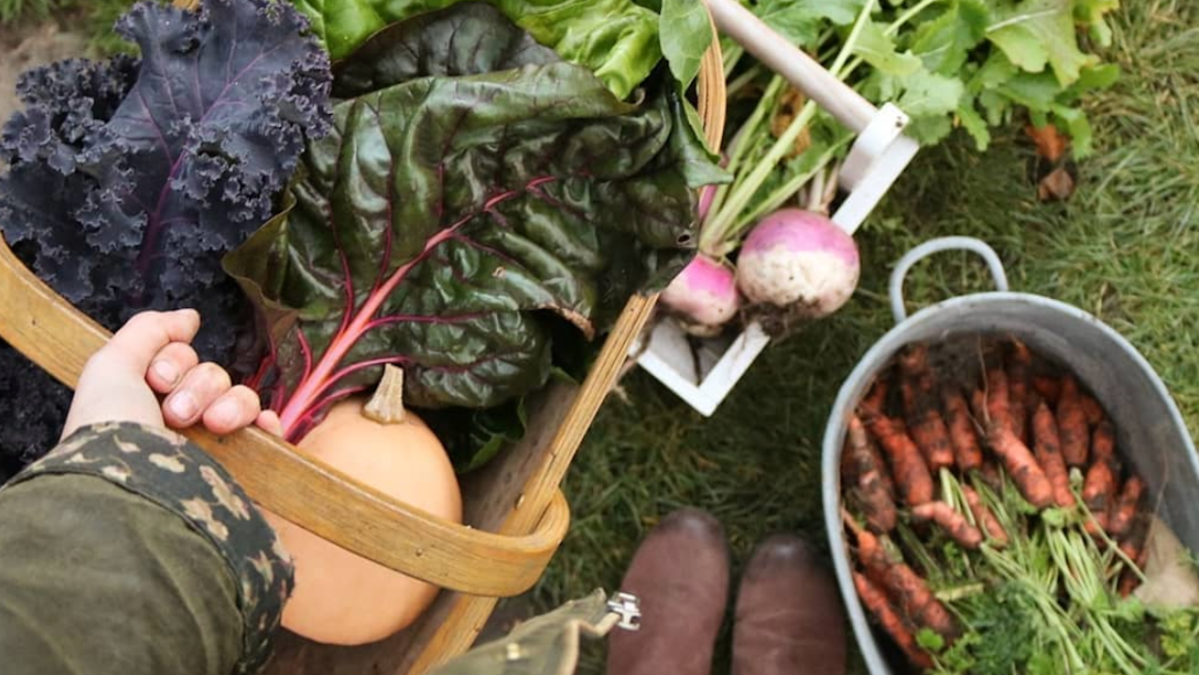
The more this planet goes to shit (hi, Adani mine) the more I want to do become one with the Earth. There’s the stuff that helps the planet, like putting little sugar waters out for the bees or reducing my waste via composting and effective recycling. And there’s the stuff that just makes me feel a bit less plugged into the consumer machine. Like growing my own vegetable garden.
[jwplayer hBEazcFg]
I’d been on the grow-your-own-herbs train for years, keeping a few pots of the basics growing on my kitchen window-sill in my old apartment. But now I have a small yard, and therefore the ability to grow some veggies. Even if you don’t have a yard, some vegetables will thrive in a balcony pot.
Growing your own vegetable garden is a great way to save some cash, lower stress and anxiety (gardening? A known stress reliever!) and feel like even though the entirety of your life is a trash-fire, you can at least keep a tomato plant alive. But, like all gardening, a vegetable garden takes work. Here’s what to know before you… grow.
1. You Need Plenty Of Sun
The top advice when it comes to planting a veggie garden is nailing the location. You’ve got to choose a spot that has plenty of sunlight – even in winter. You also have to consider frost, which can quickly kill your veggies if they’re not hardy types. The good news is you can protect plants from frost by covering them with protective netting or plastic – best to chat to your local nursery to determine what’s right for the plants you choose.
2. The Dirt Has To Be Primo
Whether you’re planting veggies directly into your yard’s ground or you’re building a garden/using a pot and therefore filling with potting mix, pick the right stuff. Veggies, especially if you’re growing from the seedling stage, need aerated soil and good nourishment – so mix some rich potting mix that’s specifically designed for veggie-growing in with your normal dirt, or fill your pot/bed with potting mix alone. Then, turn the soil over so it’s crumbly, not firm.
3. Veggies Are Seasonal
Most veggies you want for your vegetable garden will be seasonal, so you have to time your planting and accept that just because you want, say, cherry tomatoes doesn’t mean it’s the right season for it. Veggie timings are weird, but generally you plant your summer veggies in spring, and your winter ones in autumn. This guide is good, to me.
4. Spacing, Spacing, Spacing
I cannot stress this enough – READ THE LABEL OF YOUR VEGGIES. Whether you’re starting with seeds or with little plants, many veggies will grow quick-smart and need space for their root system. When I planted my bok choy they were like 5cm wide and now they’re 20cm and it’s been a few weeks, for example. If you cramp your veggies up they’ll either die or one will reign supreme (it’s always the mint).
5. Water & Fertilise Regularly
You have to water your garden daily, and give it plenty of TLC with fertiliser. You can fertilise with compost, or with liquid stuff that goes into your water (ask your nursery which one’s right for your plants).
6. There Are So Many Pests
Let’s start with the easy to deal with – pets and animals. Dogs love shitting in veggie gardens for some fucking reason, so fencing yours off is a good idea if you’ve got pups. Moving on to bugs and diseases… look, this is a complex one. There’s a few things you can do, like you want predatory insects like ladybugs and stuff but it’s this whole process of planting companion plants like garlic so they come to your garden. If you can get your head around all that, go for it. But the best thing you can do is keep your vegetable garden healthy and thriving – healthy plants are less likely to succumb to bug infestations. The other thing you can do if you’re finding bugs to be an issue is to use netting to protect plants. This guide for specific bugs is good!



